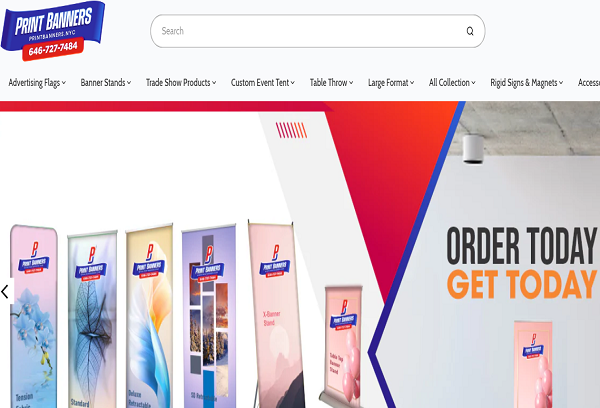Structured Data and SEO: Key Insights for 2025
- October 9, 2024
- SEO

As search engines increasingly rely on structured data to improve user experience, this trend is expected to continue growing in 2025.
Because of this, structured data has evolved from being a “nice-to-have” to a critical element of any successful SEO plan.
Here’s a breakdown of what you should know about structured data: its significance, emerging trends, essential schema types, advanced tactics, and more.
Understanding Structured Data
Structured data refers to a standardized method of organizing and tagging website content, making it easier for search engines to interpret.
Google uses structured data to generate enhanced listings, rich results, and other features within search engine results pages (SERPs).
Appearing in these special features can significantly increase your site’s visibility and organic reach, particularly in searches focused on specific entities.
Vocabulary
The most widely adopted vocabulary for structured data is Schema.org, an open-source framework offering a vast array of types and properties.
Schema.org provides hundreds of predefined categories like Product, Event, or Person, and properties such as name, price, and description.
Format
The recommended format for integrating structured data is JSON-LD (JavaScript Object Notation for Linked Data), which is supported by Google and other search engines.
JSON-LD places structured data within a <script> tag, keeping it separate from the primary HTML content.
This method is more adaptable, easier to implement, and minimally disruptive. JSON-LD is particularly advantageous for managing dynamic content on larger websites.
Validation
Ensuring correct implementation of structured data is crucial to qualify for rich results.
To confirm that your structured data is properly set up and can be processed by search engines, you can use tools like:
• Google’s Rich Results Test
• Schema Markup Validator
These tools help identify any errors or missing elements in the schema, ensuring your markup is both valid and effective.
Why Structured Data is More Critical Than Ever
Structured data allows search engines to better understand and interpret website content, improving how pages are indexed and displayed in search results.
It also enables brands to tap into less competitive search spaces, such as voice and image searches, driving traffic and engagement beyond traditional SEO strategies.
Zero-Click Search and Brand Authority
Increasingly, SERP features like knowledge panels and featured snippets rely on structured data to deliver answers directly within search results. This growing trend of “zero-click searches” means users can obtain information without ever visiting the publisher’s website.
Although these features may limit direct site traffic, they can significantly boost organic impressions, build brand awareness, and keep users engaged with the brand.
Regular appearances in rich results help reinforce top-of-mind awareness (TOMA). In a world guided by E-E-A-T (Experience, Expertise, Authoritativeness, and Trustworthiness), having a reliable and authoritative brand is essential for long-term SEO success.
Key Schema Types for 2025
While new schema types are continually being developed and should be tested as applicable, several “evergreen” types have consistently delivered strong results.
Ecommerce
Product schema, often combined with Offer and Review schemas, is indispensable for ecommerce sites, providing detailed information like price, availability, and customer reviews.
This schema supports rich snippets, such as product carousels and review stars, which can significantly enhance click-through rates (CTR).
Merchant listings, which combine Product and Offer schema, offer a great opportunity for new ecommerce businesses to gain visibility and traffic through Google Shopping.
For marketplace websites, AggregateOffer schema is highly valuable, as it allows multiple vendors’ offers for the same product to be displayed, enabling users to easily compare prices and options.
Informational Schemas
FAQ Schema
FAQ schema allows websites to showcase common questions and their corresponding answers directly in search results. This schema effectively enhances user engagement by delivering concise responses to conversational queries, with the potential to appear in rich results and voice search.
Q&A Schema
Q&A schema is tailored for pages where users can ask questions, with multiple answers provided, commonly found in forums or community-based platforms. It powers a Q&A carousel that displays both the questions and answers directly in the SERP, improving visibility and click-through rates for long-tail and conversational searches.
Article and WebPage Schema
These schemas are instrumental in increasing visibility in Google News, Discover, and top stories carousels. They also contribute to gaining recognition in voice search, helping to expand a website’s reach.
Event Schema
Event schema is used to structure information about virtual or physical events, including concerts, conferences, webinars, or local gatherings. It provides key details such as dates, locations, start and end times, ticket availability, and performer names. This schema enhances visibility in Google’s event listings, making the event more discoverable in local or event-based searches.
Additionally, newly supported properties for BroadcastEvent and ScreeningEvent improve how live events and screenings are displayed in search results, further boosting exposure.
How to Implement Structured Data in 2025
While the following applications are not brand-new, their relevance is expected to grow in 2025 as user behaviors continue to evolve.
Entity-Based Search
Entity-based search refers to how search engines now prioritize entities—such as people, places, objects, and concepts—over individual keywords. Instead of analyzing isolated words, search engines focus on the relationships between entities and how they fit within a broader context.
Structured data, such as Person, Organization, or Place schema, can clearly define these relevant entities, enhancing their visibility in Knowledge Graphs and entity-based search results.
Additionally, SameAs schema can be used to clarify to search engines that an entity mentioned on one page is the same as the one referenced elsewhere. By linking an entity to trusted external sources like Wikidata, Wikipedia, or verified social media profiles through SameAs schema, you can strengthen the entity’s association and increase its recognition and reach in Knowledge Graphs and rich search results.
Speakable Schema
Speakable schema (currently in beta at Google) is a key tool for optimizing content for voice search. It helps search engines identify which portions of a webpage are suitable for audio playback, such as through text-to-speech (TTS) on Google Assistant-enabled devices.
The primary goal of Speakable schema is to provide clear and concise answers to users’ queries in spoken format. This schema is particularly beneficial for news websites and publishers, allowing them to mark up essential content that could be featured in voice search responses.
Multimodal Search
Multimodal search enables users to interact with search engines using different types of input, such as text, images, and voice, sometimes combining them into a single query. This capability is largely powered by AI models that can process multiple data formats at once.
Structured data like VideoObject and ImageObject help ensure that multimedia content is accurately understood, indexed, and ranked in search results, making it easier for search engines to process complex queries involving diverse inputs.
Schema Nesting
Schema nesting allows for the representation of complex relationships within structured data by embedding one schema type within another. For instance, a Product schema could be nested within an Offer schema, which in turn could be embedded within a LocalBusiness schema. This setup conveys multiple layers of information, such as product availability, pricing, and location.
This approach helps search engines not only understand individual data points but also their interconnectedness, leading to richer search results like localized availability or offers tied to specific businesses.
Another example could involve a Recipe schema nested within a HowTo schema, which is then nested within a Person schema. This communicates that a specific person (such as a chef or author) created the recipe, which contains step-by-step cooking instructions.
- Person schema: Includes the chef’s name, bio, and social profiles.
- HowTo schema: Describes the process, with steps and necessary materials.
- Recipe schema: Lists ingredients, preparation time, and nutritional details.
This kind of schema nesting enables search engines to display rich snippets that provide detailed information in a structured and organized way, including the recipe creator, ingredients, and preparation steps.
While schema nesting primarily improves contextual understanding and enhances rich results, it also offers greater flexibility in meeting various search intents, allowing search engines to prioritize relevant information based on user queries.
Maximize Your Search Visibility with Structured Data
Structured data has become an essential factor in driving SEO success for websites of all sizes.
With hundreds of schema types, numerous Google SERP features, and expanding applications in AI and voice search, its role will only grow more critical in 2025.
As search platforms like Google continue to evolve, strategically and creatively using structured data can offer a significant competitive advantage. It helps boost visibility in current features while positioning your site for future opportunities in an ever-changing search landscape.
For businesses aiming to improve their online presence, partnering with a local SEO expert can make all the difference. Earn SEO, based in New York, specializes in harnessing the power of structured data and other advanced SEO techniques to elevate your website’s visibility. By implementing effective local SEO strategies tailored to your specific needs, Earn SEO helps businesses navigate the complexities of the digital landscape, ensuring they stand out in search results and reach their target audience effectively.
Earn SEO was established in 2011 by Devendra Mishra, a highly educated professional with varied training and experience. Mr. Mishra is responsible for business development, attracting new Earn SEO partners, and interacting with clients, the media and press, and acting as Brand Ambassador.
Devendra Mishra
Founder





































